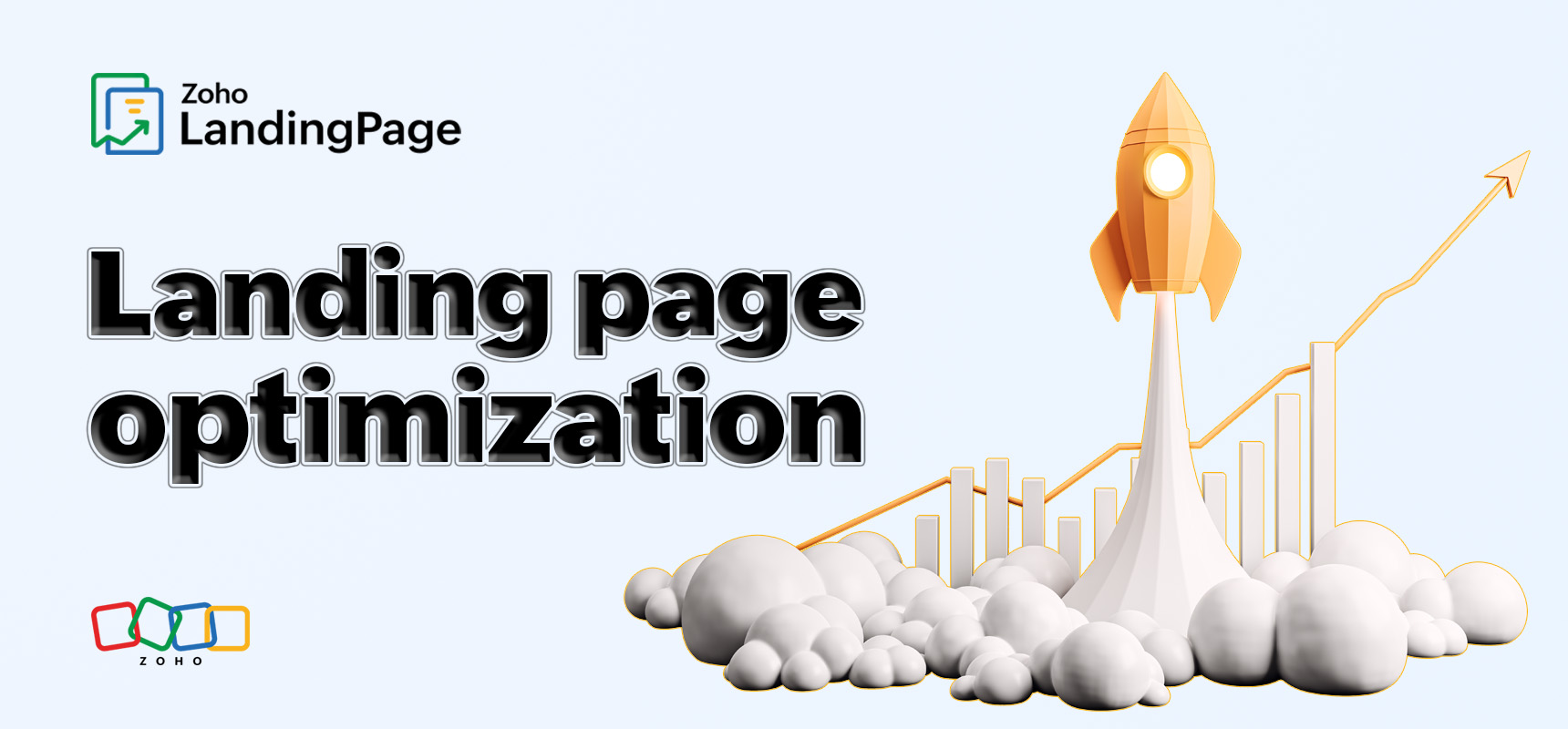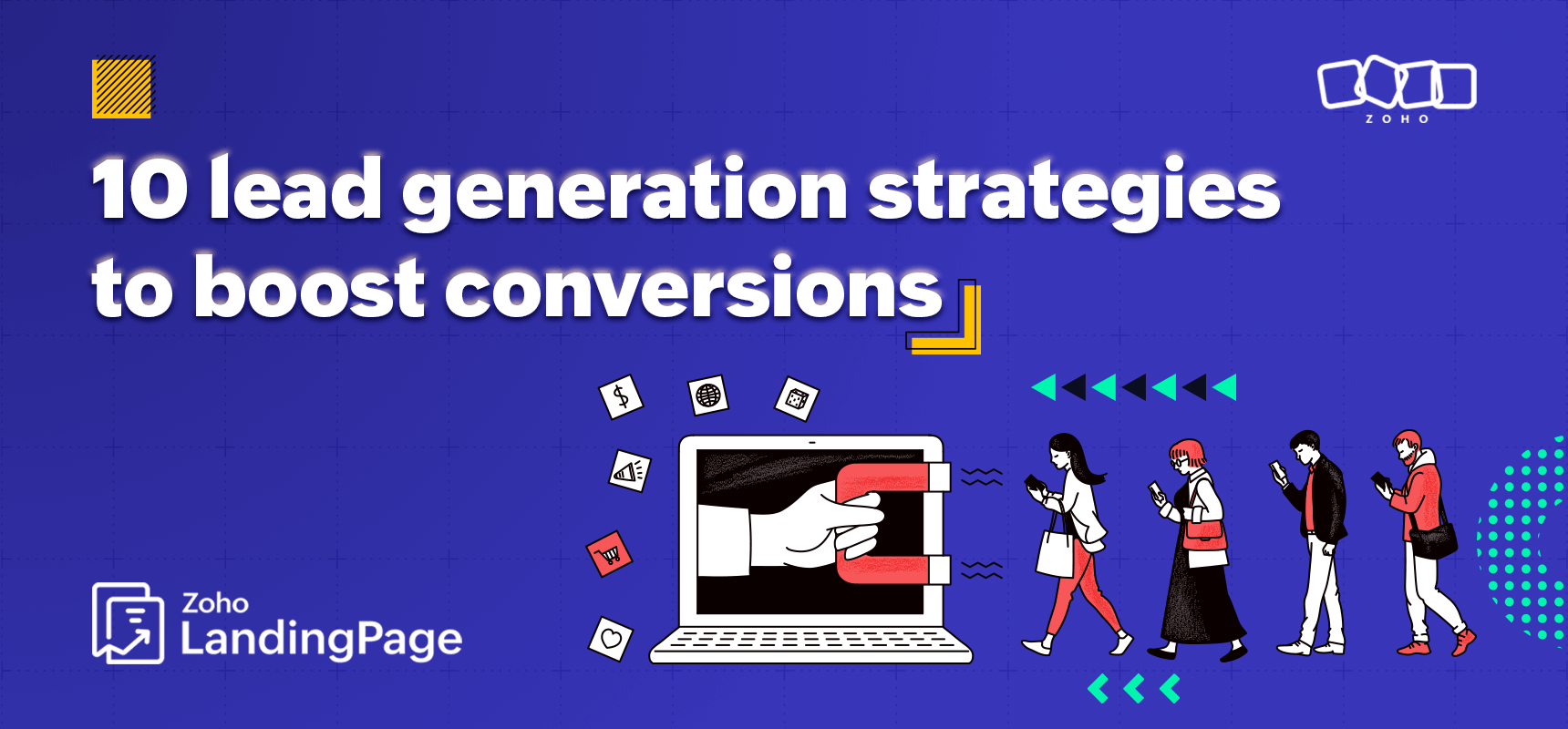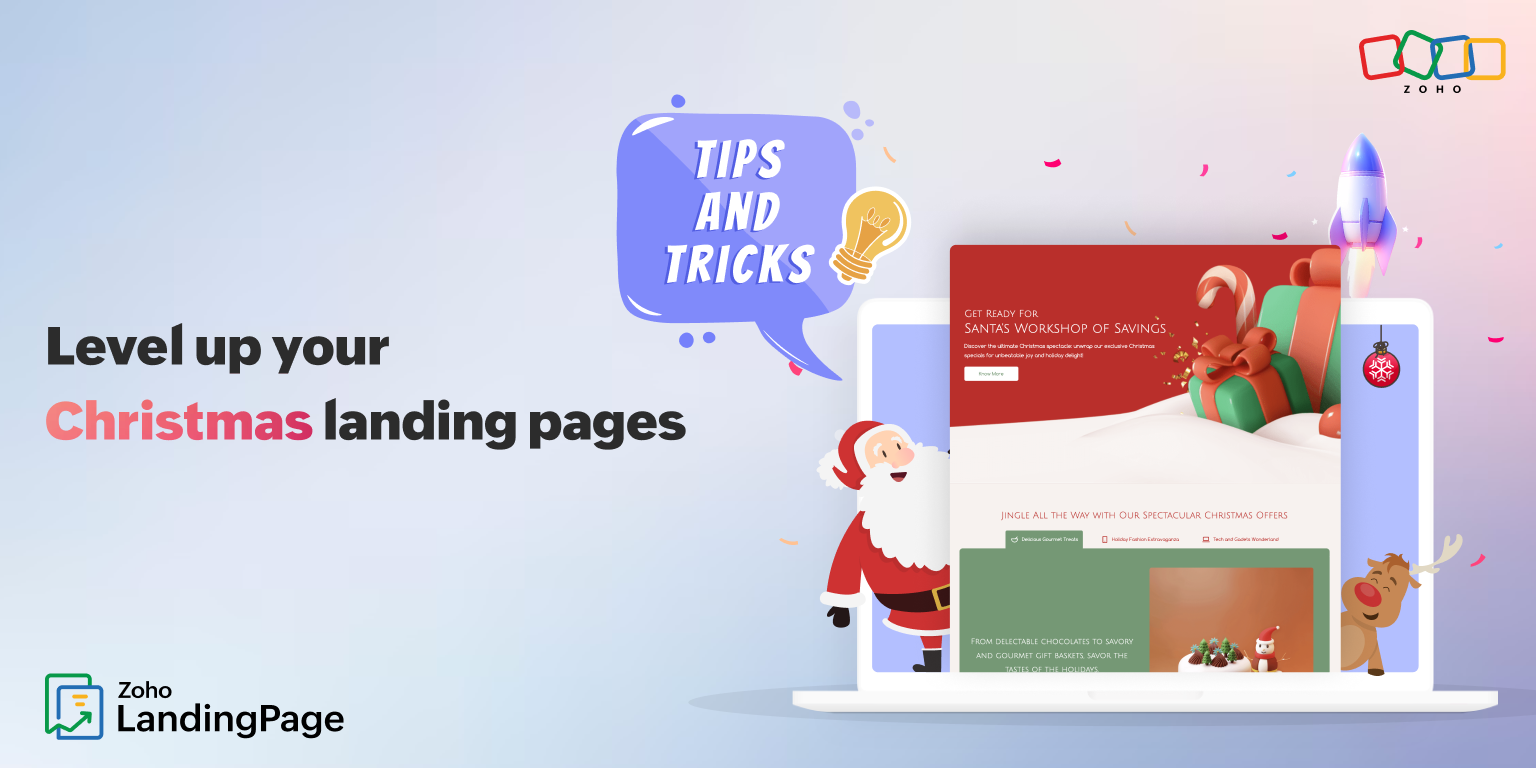Landing pages vs. Websites : What are the major differences?
- Last Updated : August 12, 2024
- 1.6K Views
- 5 Min Read
Landing pages and websites—these terms are often used interchangeably in marketing talk. However, there are some major differences between landing pages and websites in the way they're created and used.
Most businesses these days have a functional website. A place where you can learn all about the business and the products/services they offer. Many businesses even consider this website's homepage as their landing page because visitors do land on this page. But landing pages are the opposite of websites and their homepages. They focus less on educating visitors about the business history and more on converting visitors into customers.
In this blog, we'll learn how landing pages differ from websites and how they can fit into your marketing strategy to improve your conversions!
What is a website?
For a business, a website is its digital hub. It's designed to give online customers a way to learn more about the business, its products or services, and how they can make a purchase or get in touch.
Elements of a website
Most websites will include a homepage, which is the first page that most visitors will see. It gives a broad overview of the business and what it offers. Then we have the "about us" section where you can include the history, the vision, the values, and the team behind it.
If you have products and services, there must be a page that lists them with detailed descriptions, prices, and pictures. If you have an ecommerce website, people can buy right off your website; otherwise, you give customers your contact details or embed a contact form where they can leave their contact details. Testimonials, reviews, social media links, and FAQs are other elements that you can expect to find on a website.
What is a landing page?
Landing pages are standalone web pages that are focused on a specific goal. Unlike a website, which introduces your entire business, a landing page is more about making a single offer to the audience.
Want to learn in-detail about landing pages? Take a deep dive : What is a landing page?
Elements of a landing page
Landing pages are generally created to achieve a business goal, such as lead generation or event registration. So, the elements of the page will also differ accordingly.
Landing pages must include a standout headline that grabs the attention and informs visitors what the page is about. Once you've grabbed attention, it's important to back it up with a subheading and a product description that provides more detail about the offer.
Any pitch is incomplete without visual proof. Offer photos, videos, or graphics to convince your visitors to stay on the page. Seal the deal with testimonials and reviews that back up your business. Just when you think visitors are contemplating your offer, use a clear, attractive call-to-action (CTA) button to take the next step, i.e., make a purchase.
Need more inspiration? Check out our landing page templates
Key differences between a landing page and a website
From the above section, it's evident that landing pages and websites are intrinsically different in the way they're built and the purpose they serve. In this section, we'll do a deep dive to understand how exactly they differ.
Content
Landing pages usually have persuasive, catchy content that gently nudges visitors towards the CTA. The landing page design should support the landing page goal to be anything from generating leads to promoting a new product.
Websites offer a wider range of content across multiple pages, including about us pages, product descriptions, mission statements, customer testimonials, and contact information.
Purpose
Landing pages serve a variety of purposes, such as getting signups for newsletters, boosting registrations for a webinar, or improving the conversion rate for your seasonal sales. They're meant to drive a specific action from the visitor.
Websites provide comprehensive information about the brand or business, covering various aspects like company history, product/service details, and contact information. The purpose is often to build awareness and trust with visitors.
Navigation
Landing pages have a simple structure because they want to keep the user focused on the CTA. So, they rarely have menus or links that lead visitors away from the page.
Websites allow visitors to explore the business at their own pace. So, they offer extensive navigation that often leads them away from the homepage. Each user will have their journey in exploring the website.
Duration
Landing pages are often created for short-term purposes, such as specific marketing campaigns or events. These landing pages may be removed or changed once the campaign ends.
Websites are often created on a long-term basis to provide a permanent online presence for the business. This helps build brand recognition and establish a reliable point of contact for customers.
Audience targeting
Landing pages are highly targeted.They're designed to grab the attention of people coming from ads, emails, and social media and guide them towards achieving the landing page goal, like making a purchase or subscribing to a newsletter.
Websites are used to target a broader audience, aiming to provide a comprehensive view of the business or individual to anyone who might be interested.
Search engine optimization (SEO)
Landing pages may not always be optimized for search engines as they're designed for conversions from targeted marketing rather than organic search traffic. However, seasonal landing pages can be used to improve search engine ranking with the help of SEO.
Websites that appear on the first page of search results are often perceived as more trustworthy and credible by visitors. So, they must be optimized for search engines through the use of keywords, meta tags, and high-quality, relevant content.
Landing page vs. website: Which one should you choose?
Choosing a landing page or a whole website comes down to your business/marketing goals, the audience you want to reach, and the nature of your marketing campaign. Here is a quick guide to help you decide:
When to use a website
Your business needs a website irrespective of whether you have digital offerings or ecommerce requirements. A website helps build a credible and professional online presence to provide comprehensive information about your business, products, and services to a broad audience.
When to use a landing page
Building your brand identity is a crucial step in marketing, but it doesn't stop there. While websites can help with building trust and credibility, they aren't your best friends when it comes to conversions. To achieve your business marketing goals, you need conversion-focused landing pages to guide visitors towards taking action.
Ultimately, the decision to use a website or a landing page depends on your specific business goals, target audience, and marketing objectives. In most cases, businesses will benefit from having both a website and dedicated landing pages to support different aspects of their marketing efforts and cater to the needs of different audience segments. By understanding the unique strengths and purposes of each, you can leverage both websites and landing pages effectively to achieve your marketing goals and drive results for your business.
 Krithika
KrithikaContent Marketer @ Zoho LandingPage


